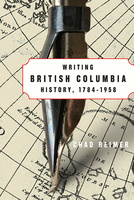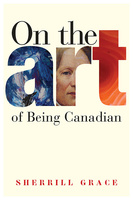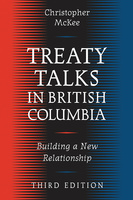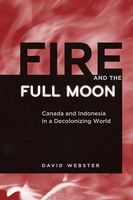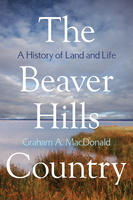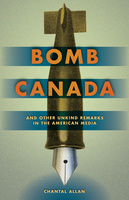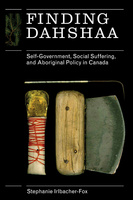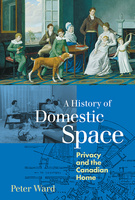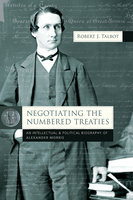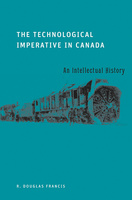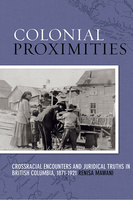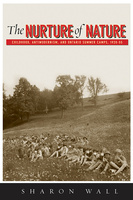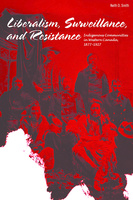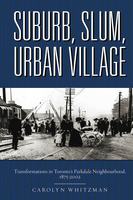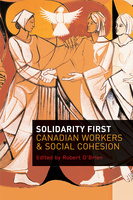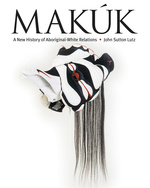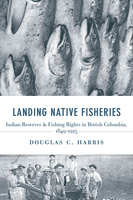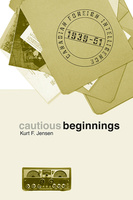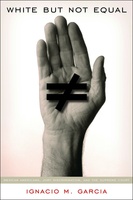Writing British Columbia History, 1784-1958
This sweeping exploration of history writing in British Columbia shows how historians helped to construct Canada's settler society.
On the Art of Being Canadian
Drawing on a wealth of artistic expression, this book explores how the arts and artists have shaped Canadian national identity.
Unions, Equity, and the Path to Renewal
This feminist analysis of union renewal strategies suggests that equity is the way to reposition organized labour as a central institution in workers’ lives.
Treaty Talks in British Columbia, Third Edition
Building a New Relationship
This third edition of a classic brings readers up to date on treaty negotiations in British Columbia and is a valuable resource for those interested in the treaty process both in BC and Canada.
Fire and the Full Moon
Canada and Indonesia in a Decolonizing World
Fire and the Full Moon reassesses Canada’s postwar foreign policy objectives and national image through the gulf between rhetoric and reality in Canada’s response to decolonization in Indonesia and the Global South.
The Beaver Hills Country
A History of Land and Life
This book explores a relatively small, but interesting and anomalous, region of Alberta between the North Saskatchewan and the Battle Rivers.
Bomb Canada
and Other Unkind Remarks in the American Media
By examining major events that have tested bilateral relations, Bomb Canada tracks the history of anti-Canadianism in the U.S.
In Mixed Company
Taverns and Public Life in Upper Canada
A fascinating exploration of the tavern as a significant and fluid social space in colonial Canada.
Home Is the Hunter
The James Bay Cree and Their Land
The James Bay Cree lived in relative isolation until 1970, when Northern Quebec was swept up in the political and cultural changes of the Quiet Revolution. Home Is the Hunter presents the historical, environmental, and cultural context from which this recent story grows.
From Rights to Needs
A History of Family Allowances in Canada, 1929-92
This comprehensive exploration of the origins and development of family allowances offers inventive insights into Canada’s welfare state and social policy over the past half century.
Finding Dahshaa
Self-Government, Social Suffering, and Aboriginal Policy in Canada
Based on case studies of three self-government negotiations in the Northwest Territories, Finding Dahshaa is the first ethnographic study of the negotiation of self-government in Canada.
Becoming British Columbia
A Population History
Becoming British Columbia investigates critical moments in the demographic record of British Columbia, including catastrophic epidemics, immigrant rushes, forced migrations, the fertility transition, and the baby boom, in an accessible yet scholarly and provocative way.
A History of Domestic Space
Privacy and the Canadian Home
Peter Ward looks at how spaces in the Canadian home have changed over the last three centuries, and how family and social relationships have shaped – and been shaped by – these changing spaces.
Negotiating the Numbered Treaties
An Intellectual and Political History of Alexander Morris
The story of the prairie treaties and Alexander Morris, a man who embraced a larger concept of nationhood and the role of First Nations in the expansion of Canada.
The Technological Imperative in Canada
An Intellectual History
This highly original, seminal study of Canadian theorists of technology and morality shows that Canadian thinkers were not only original and intellectually au courant but also engaging and insightful.
Becoming Native in a Foreign Land
Sport, Visual Culture, and Identity in Montreal, 1840-85
This richly illustrated book shows how English-speaking colonists in Montreal appropriated French Canadian and indigenous sports traditions to forge a new, “Canadian” identity, which marginalized French Canadians and Aboriginal peoples in their own land.
Canada's Voice
The Public Life of John Wendell Holmes
Canada’s Voice is the first comprehensive biography of a diplomat and scholar who shaped foreign policy during Canada’s golden age as a middle power.
Colonial Proximities
Crossracial Encounters and Juridical Truths in British Columbia, 1871-1921
Colonial Proximities traces the encounters between aboriginal peoples, mixed-race populations, Chinese migrants, and Europeans in late-nineteenth- and early-twentieth-century British Columbia.
The Nurture of Nature
Childhood, Antimodernism, and Ontario Summer Camps, 1920-55
This book explores how antimodern nostalgia and modern sensibilities about the landscape, child rearing, and identity shaped the history of summer camps.
Liberalism, Surveillance, and Resistance
Indigenous communities in Western Canada, 1877-1927
This book explores the means used by government officials, police officers, church representatives, and ordinary settlers to facilitate and justify colonization, their effects on Indigenous economic, political, social, and spiritual lives, and how they were resisted.
Kiss the kids for dad, Don’t forget to write
The Wartime Letters of George Timmins, 1916-18
The letters of Lance-Corporal George Timmins, who served in the Canadian Expeditionary Force on the Western Front, offer a rare glimpse into the life and relationships, at home and abroad, of an ordinary Canadian soldier.
Suburb, Slum, Urban Village
Transformations in Toronto’s Parkdale Neighbourhood, 1875-2002
A history of Toronto’s Parkdale neighbourhood, spanning three eras of suburban and urban development and examining the controversial planning practices that shaped it.
Solidarity First
Canadian Workers and Social Cohesion
Solidarity First examines the concept and practice of social cohesion in terms of its impact on, and significance for, workers in Canada.
Landing Native Fisheries
Indian Reserves and Fishing Rights in British Columbia, 1849-1925
Contributing Citizens
Modern Charitable Fundraising and the Making of the Welfare State, 1920-66
A social and political history of Community Chests, and the development of Canada's welfare state.
Contradictory Impulses
Canada and Japan in the Twentieth Century
Contradictory Impulses is a comprehensive study of the social, political, and economic interactions between Canada and Japan from the late nineteenth century until today.
Cautious Beginnings
Canadian Foreign Intelligence, 1939-51
A convincing portrait of Canada's active role in Second World War intelligence gathering.
Brock Chisholm, the World Health Organization, and the Cold War
This is the story of a man and an institution. A world-renowned psychiatrist and first director-general of the World Health Organization, Brock Chisholm was one of the most influential Canadians of the twentieth century, yet is little-known today.
White But Not Equal
Check out "A Class Apart" - the new PBS American Experience documentary that explores this historic case! In 1952 in Edna, Texas, Pete Hernández, a twenty-one-year-old cotton picker, got into a fight with several men and was dragged from a tavern, robbed, and beaten. Upon ...

